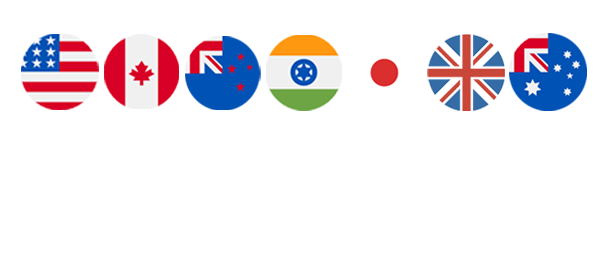

Studying in the country of poets and philosophers. Culturally, everybody can find something he likes. The most populous country in the EU is a multi culture society .Not just in the big metropolis Berline , Hamburg, Cologne or Munich but also in the smaller cities people from all places of the world are forming the image. Across the republic there are festivals whose publicity goes far beyond the region: carnival in cologne, wine festivals in the Palastine and drinking beer at the Oktoberfest in Munich. Also the German landscapes is multi sided Swimming in the North Sea, a boat trip on the Rhine or hiking in the Alps.
Jan/October
10+2 passed and above
Above 5.5 on IELTS with German language
Why Germany?
Explore why Germany is a top choice for international students. Discover its prestigious education system offering a wide range of disciplines and high-quality academic programs respected worldwide. Benefit from a strong economy providing abundant job opportunities, practical experience, and a multicultural environment fostering global perspectives and networking. With its high standard of living, efficient infrastructure, and favorable post-study work options, Germany offers an ideal setting for a rewarding academic and professional journey abroad.

Reasons to Study in Germany as an International Student
- First Class Education: Students gain from exceptional teaching delivered by highly accomplished professors known for their educational expertise. German institutions are consistently ranked among the top globally, promoting academic excellence within a dynamic learning environment.
- Strong Focus on Research and Innovation: Germany is at the forefront of technological and scientific research. Students have access to cutting-edge facilities and can participate in significant research projects. Strong ties between universities and industries provide students with opportunities for internships, projects, and future employment.
- Programs Delivered in English: Numerous programs are conducted in English, offering international students a high-quality education without requiring proficiency in German. This linguistic flexibility increases accessibility and draws students globally.
- Affordable Cost of Living: Germany provides a cost-effective lifestyle, with reasonable monthly expenses for essentials like accommodation, groceries, transportation, healthcare, and leisure. This affordability allows students to concentrate on their studies without financial strain.
- Post-Graduation Employment Opportunities: Because of Germany’s robust economy and welcoming immigration laws, students can pursue a wide range of professional opportunities there after completing their education. Graduates can easily transfer into the workforce and achieve their professional goals thanks to the abundance of employment options.
Facts about Germany
- In Europe, Germany is among the nations with the densest populations.
- Germany still has a third of its territory covered in forests and woodlands.
- Berlin has more bridges than Venice and is nine times larger than Paris.
- Germany has been using the Euro as its official currency since 2002.
- Germany is Europe’s second-largest beer consumer. In Germany, you can also legally enjoy your first beer at 16.
- Germans are known for punctuality and efficiency, with trains and public transportation often running on time.
- Since it is fundamental to human nature to be free, there is no legal penalty in Germany for a prisoner who attempts to escape custody.
Living in Germany
![]() Healthcare Facilities: Germany provides cutting-edge healthcare facilities that are both advanced and affordable, backed by the national student health insurance programme.
Healthcare Facilities: Germany provides cutting-edge healthcare facilities that are both advanced and affordable, backed by the national student health insurance programme.
![]() Security: Germany’s low crime rate offers a safe environment for students both on and off campus, fostering a strong sense of security and well-being.
Security: Germany’s low crime rate offers a safe environment for students both on and off campus, fostering a strong sense of security and well-being.
![]() Mobility: Germany offers a rich array of cultural experiences, from historic cities to scenic landscapes, enriching residents’ lives with diverse traditions and events.
Mobility: Germany offers a rich array of cultural experiences, from historic cities to scenic landscapes, enriching residents’ lives with diverse traditions and events.
![]() Groceries and Food Expenses: Food expenses in Germany are economical, averaging about €200 per month. Budget-friendly grocery stores like Lidl and Aldi, along with discounted campus dining options, make both dining out and cooking at home affordable for students.
Groceries and Food Expenses: Food expenses in Germany are economical, averaging about €200 per month. Budget-friendly grocery stores like Lidl and Aldi, along with discounted campus dining options, make both dining out and cooking at home affordable for students.
![]() Cultural Communities: Germany’s multicultural communities create a welcoming atmosphere for international students to build friendships and feel at home. Universities also organise programmes to promote student unity and facilitate cross-cultural exchange.
Cultural Communities: Germany’s multicultural communities create a welcoming atmosphere for international students to build friendships and feel at home. Universities also organise programmes to promote student unity and facilitate cross-cultural exchange.
![]() Quality Education: Germany is well-known for its exceptional education system, featuring a variety of academic programmes taught in English that offer students diverse learning opportunities and improve their career prospects.
Quality Education: Germany is well-known for its exceptional education system, featuring a variety of academic programmes taught in English that offer students diverse learning opportunities and improve their career prospects.
![]() Job Opportunities: Due to its robust economy and flourishing job market, Germany provides numerous part-time job opportunities for students to gain work experience and supplement their income during their studies.
Job Opportunities: Due to its robust economy and flourishing job market, Germany provides numerous part-time job opportunities for students to gain work experience and supplement their income during their studies.
![]() Environmental Consciousness: Germany places a strong emphasis on environmental sustainability, including initiatives like recycling programmes and renewable energy projects. These efforts offer students opportunities to participate in eco-friendly practices and contribute to global conservation efforts.
Environmental Consciousness: Germany places a strong emphasis on environmental sustainability, including initiatives like recycling programmes and renewable energy projects. These efforts offer students opportunities to participate in eco-friendly practices and contribute to global conservation efforts.
Details regarding the cost of living in Germany
Here is a summary of average expenses and general information on the cost of living in Germany. Keep in mind that prices can change based on your lifestyle.
| Expense Category | Average Monthly Cost |
| Rent (shared room including electricity, heating, water, and garbage) | €300 – €450 |
| Food (Groceries) | €100 – €200 |
| Transportation (public transport pass) | €50 – €90 |
| Health Insurance | €80 – €130 |
| Mobile Phone Plan | €10 – €30 |
| Entertainment/Leisure | €50 – €100 |
| Total | €590 – €1000 |
Why Berlin?
Berlin stands out as an attractive destination for students due to its vibrant cultural scene, world-class universities, and diverse community. The city’s cosmopolitan atmosphere fosters creativity and innovation while offering ample job opportunities in thriving sectors like technology and media. With affordable living costs, excellent public transport, and a rich historical backdrop, Berlin provides a high quality of life that appeals to students seeking a dynamic and enriching experience abroad.
How is student life in Berlin?
Student life in Berlin is vibrant and diverse, offering a mix of academic excellence, cultural richness, and social opportunities. The city hosts numerous universities and research institutions, providing students with access to high-quality education and cutting-edge research facilities. Beyond academics, Berlin’s multicultural environment fosters a welcoming atmosphere for international students, encouraging cultural exchange and diverse perspectives. Students can explore a rich array of cultural activities, including art galleries, museums, theaters, and music venues. The city’s affordable living costs, efficient public transportation, and abundance of green spaces further enhance student life, making it easy to balance studies with social activities and enjoying all that Berlin has to offer.
Why eiIET?
Students in Germany select eiIET as their educational destination for a number of reasons. Among them are:
- At eiIET, distinguished faculty members are knowledge catalysts rather than just teachers. They provide a thorough education that blends academic understanding with real-world application.
- Innovation and critical thinking are highly valued in the eiIET culture. You will be encouraged to think outside the box and be creative to equip yourself to be a change agent and a pioneer of new possibilities.
- eiIET is home to state-of-the-art labs, collaborative areas, and classrooms that promote interdisciplinary dialogue as well as creativity and innovation.
- eiIET provides a dynamic network of like-minded people in addition to academics. You can participate in extracurricular activities, workshops, seminars, and networking events to enhance your personal and professional growth.
- Furthermore, by expertly combining a progressive mindset with historical charm, eiIET—conveniently situated in the heart of Berlin, Germany—offers the ideal environment for immersive learning.
Programme Overview
| Programme | Duration | Intakes |
| Executive MBA in the HoReCa industry | 1 year (2 semesters) | February/ May/ August/ October |
| M.A. in Tourism and Recreation | 2 years (4 Semesters) | February / May/ August/ October |
| B.A. in Tourism & Recreation | 3 years (6 Semesters) | January/ April/ August/ October |
Admission Criteria for Bachelor’s, Master’s, and Executive MBA Programmes
- Passport
- Birth certificate
- Recognised academic certificates for secondary, higher secondary, and undergraduate education
- School/college leaving certificate
- Documentation to account for any gaps in education
- Official English proficiency test certificate (e.g., IELTS) or documentation indicating previous studies conducted in English
- Completed application form
- Curriculum Vitae (CV)
- Statement of Purpose (SOP) or Motivation Letter
Aspects of a Professional Career Completing the Course
| Programmes | Career Aspects |
| Executive MBA in the HoReCa industry | Hotel General Manager Hotel Director of Sales Casino Property General Manager Hospitality Management Consultant Hospitality Technology Consultant Restaurant Manager Director of Food and Beverage Hospitality Brand Manager Event Planner Travel Coordinator Cruise Manager Restaurant Finance Manager |
| M.A. in Tourism and Recreation | Travel Agent Tour Guide Tour Manager PR Manager Event Manager Travel Writer Travel Consultant Resort Manager Hotel Manager |
| B.A. in Tourism & Recreation | Assistant Travel Agent Assistant Tour Guide Assistant Tour Manager Assistant PR Manager Assistant Event Manager Travel Writer Assistant Travel Consultant Assistant Resort Manager Assistant Hotel Manager |







